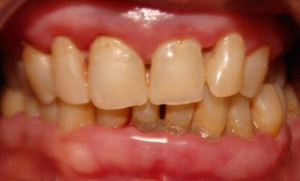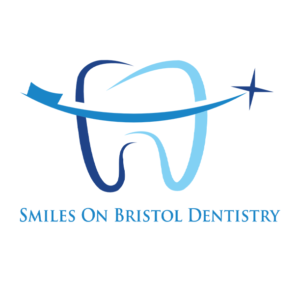Dry mouth which is also called xerostomia is caused by decrease amount of saliva in the mouth when the salivary glands do not work properly. The salivary glands function are to help to keep your mouth moist, which is also prevent tooth decay and some other oral health problems.
Medications (Not all but some) in general are the most common cause of dry mouth. The most common medications are antidepressants, painkillers, antihypertensive, tranquilizers, diuretics, and antihistamines.
In Smiles on Bristol Dentistry our Doctors try to educate our patient in order to improve their Oral hygiene in order to reduce the risk of tooth decay or other oral health problems. In some cases patients also could take other type of medications which has the same effect on their treatment but less chance of dry mouth which 100% should be based on their physician’s decision.
Dry Mouth It also can be caused by radiation therapy and chemotherapy, hormonal alterations, AIDS, diabetes, or Sjögren’s syndrome (is a chronic, autoimmune disease identified by its two most common symptoms, dry eyes and a dry mouth).
Some patients with Alzheimer’s disease are also could experience dry mouth.
Studies show approximately 30 percent of people over the age of 65 are affected by dry mouth.
Dr. Danial Kalantari & Dr. Fernando Arcila in Smiles on Bristol Dentistry are willing to help the patients to prevent dry mouth if possible or decrease the risk of teeth decays or other health problems because dry mouth it can cause difficulty in tasting, chewing, or swallowing. It also allows plaque to build up on your teeth faster, which cause higher risk of decays. Decrease Salivary secretion can also cause tongue sensitivity, causing a condition called burning mouth syndrome. Xerostomia or dry mouth can also lead to bad breath, ulceration, mouth soreness, gum disease, and difficulty in wearing dentures.
How can your Dentist help you?
Our Dentists in Smiles on Bristol Dentistry at first have to diagnose the problem base on the symptoms associated with dry mouth. If you have any questions about this condition, you can also ask your dentist.
There are many treatments that can help ease the symptoms of dry mouth or to relieve your symptoms. General speaking some recommendation which Dr. Danial Kalantari and Dr. Fernando Arcila having for their patients in Smiles on Bristol Dentistry with dry mouth condition is the following:
Brush and floss more often (improve Oral Hygiene )
Chew sugar-free gum which increase the flow of saliva
Avoid alcohol and caffeine, because of increasing water loss by triggering frequent urination
Use mouth rinses or mouthwashes that do not contain alcohol
Avoid smoking
Avoid dry foods (Like toast or crackers)
Avoid acidic juices (Lemon, orange, grapefruit)
Avoid salty foods
Drink plenty of water every day
Regular dentist visits
So In General at the end your doctor will recommend that you practice good dental hygiene. This means that you should brush and floss properly. You also should have regular dental visits. Your dentist or hygienist in some cases also will regularly apply fluoride to your teeth. You may be given a prescription for a fluoride rinse to use at home too. Your physician also may work with your dentist to manage your condition which in some cases is very helpful. If you have any questions regarding dry mouth please feel free to contact Smiles on Bristol Dentistry in Santa Ana.

